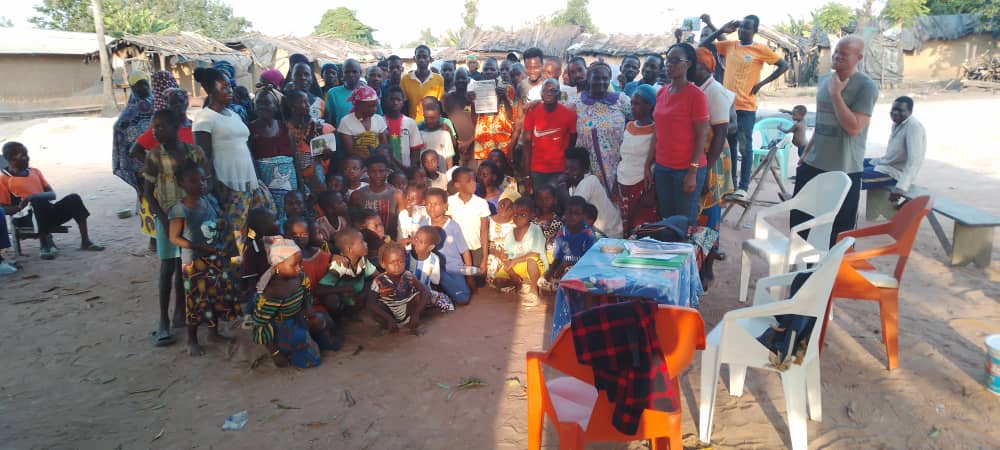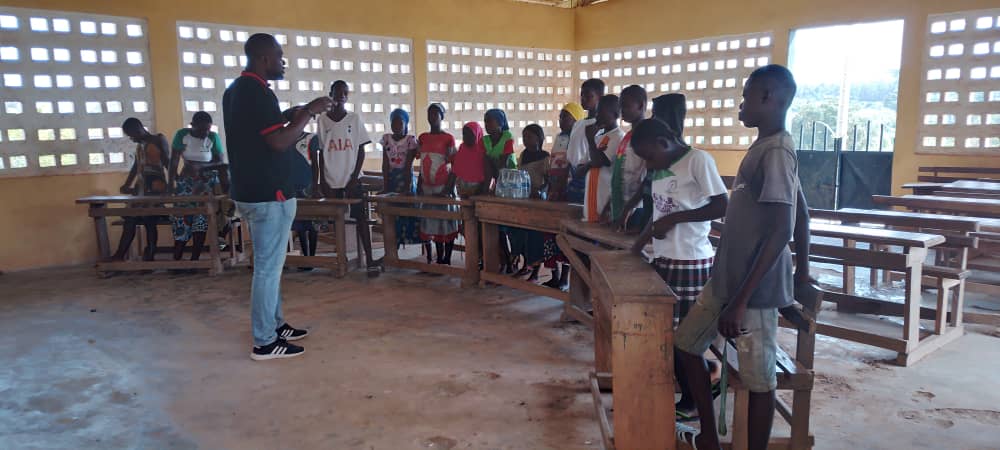Village Social Contracts to Reduce Hazardous Child Labour in Cocoa Farms
What is the main objective of the project?
This project aims to assess the impact of social contracts in 15 cocoa-growing communities in the Bas-Sassandra region, Côte d’Ivoire. It is part of a broader community intervention in 30 communities that promotes child protection, creates a safe learning environment, and strengthens economic resilience for cocoa-producing families, contributing to efforts to reduce child labour.
How will the project contribute to sustainable cocoa production?
The idea behind this project is simple but powerful. Rather than imposing external solutions, it follows a participatory and community-led model that brings together cocoa communities in Côte d’Ivoire to actively reduce child labour in their communities. Applying a behavioural science approach, this project facilitates spaces where caregivers and children jointly choose and commit to realistic and beneficial behaviours in relation to children’s wellbeing. Using behavioural science can provide a cost-effective way to better understand people’s actions and deliver better results for children.
The project will be led by Save the Children’s Centre for Utilizing Behavioural Insights for Children (CUBIC), the first behavioural science team in the world to focus on the rights and welfare of the most marginalised children.

"This cost-effective, bottom-up approach takes into consideration the preferences of caregivers and children, increasing the chances of success as the whole community is part of the solution."
What steps are taken during the project?
The project will be implemented in 15 randomly selected communities, leaving the other 15 communities to play the role of control communities. With support from trained local facilitators, each community will identify a set of specific actions concerning child labour and schooling that they commit to doing throughout the year.
These commitments selected by them and for them will then be transferred to a community social contract signed by community members, an explicit agreement among the members of a community that defines the rights and duties of each. The intervention consists of three one-day community events from September to May (coinciding with the school year). Data collection will occur at baseline and end-line in all 30 communities and an impact evaluation will be conducted to assess the impact of the social contract intervention on child labour and schooling outcomes.
How do you plan to communicate the outcomes to relevant stakeholders?
Stakeholder involvement and local ownership are deeply entrenched in this project. The communities will own and lead their own decisions and changes in behaviour in relation to child labour.
Through various platforms and fora such as ICI, SWISSCO, or the annual Cocoa Learning Conference convened by Save the Children in Côte d’Ivoire, the project results will be shared widely with a national and international audience.
Where do you see the potential for the cocoa sector and beyond to learn from the outcomes of this project?
The greatest potential for stakeholders to learn from this project lies in understanding better how behavioural change can lead to better outcomes for children. The impact study offers insights into effective strategies, challenges, and successes for behavioural science in contributing to a reduction of child labour, not only in Côte d’Ivoire but also by sharing lessons with other cocoa-producing regions.
Organisations involved





